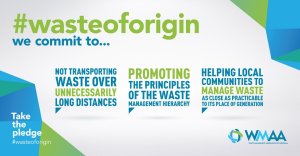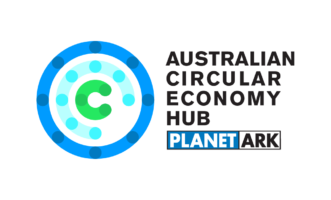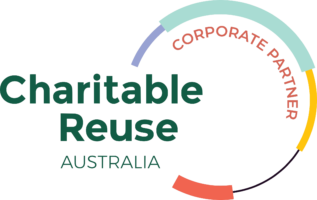Waste of origin
By Mike Ritchie, MRA Consulting Group
The Waste Management Association of Australia (WMAA) Waste of Origin pledge is an excellent initiative taken by industry to resolve a problem that others will not. The problem of waste flooding in to Queensland landfills to take advantage of the fact that no landfill levy exists in the state.
It is no secret that the movement of waste to Queensland has been growing rapidly since the former Newman government removed the landfill levy in July 2012.
That decision impacted heavily on recycling rates and created a price arbitrage of at least $40/tonne for waste companies to transport waste to Queensland. Again, no secret. We have been writing about it for over two years.
 When the Palaszcuk government was elected in February 2015, we wrote of the interstate transport, how the new government needed to revitalise the Queensland recycling system. At the time, NSW had introduced the Proximity Rule in an effort to deal with long haul transport of waste.
When the Palaszcuk government was elected in February 2015, we wrote of the interstate transport, how the new government needed to revitalise the Queensland recycling system. At the time, NSW had introduced the Proximity Rule in an effort to deal with long haul transport of waste.
Later in 2015 we contrasted NSW and Queensland’s performance. We described how NSW had created a virtuous cycle of landfill levy being used to fund new recycling to drive up overall diversion rates. Queensland had the opposite trend, with decreasing rates of diversion. The Proximity Rule was still in place, but unable to deal with burgeoning railroad transport. And recyclers in both states were suffering.
Fast forward to May 2017, and Queensland’s 2016 Waste and Recycling Report highlighted that interstate tonnages had increased by 40% in the space of a year. At this point it had become clear that the Proximity Rule was unable to be enforced by NSW EPA due to s92 of the Constitution limiting the power of the State Government to “interfere” with interstate commerce. The NSW Government decided not to take legal action to enforce the Proximity Rule in the Federal Court when challenged by a waste company. That decision has led to the current malaise.
Then came the Four Corners show “Trashed”. Whilst we disagree with its framing of the interstate transport as criminal (it is not), we repeated our call for clear action to remove the $40/tonne price arbitrage.
Let’s be honest here. Landfill levy is not intended to result in the long distance transport of waste to Queensland. Long distance transport increases road safety risks, increases the future environmental liability for Queenslanders, and undermines recyclers in all States participating in the trade.
This is why it is pleasing to see WMAA take clear action with its voluntary pledge. Garth Lamb (President) and Gayle Sloan (CEO) have found a good balance between frustration and pragmatism. Companies cannot solve this issue. Only Governments have regulatory powers. The Pledge acknowledges that for a waste company, transporting waste 1,000 km is a rational response to market pricing, yet gives companies the opportunity to publicly differentiate themselves.
It is an appropriate short-term approach, while governments resolve the broader policy issues.
Waste generators will now have transparency on what happens with their waste, and if they want to be certain that their waste is not being transported to Queensland, they know which waste contractors to use. It also gives waste contractors the opportunity to negotiate new waste disposal pricing with their clients to ensure waste stays local.
We hope to see every industry operator get on board and support the pledge. MRA has, as have SUEZ and Remondis. Many more should. It is very easily done at the WMAA website.
This is our opportunity to show that we, as an industry, can respond collectively to issues that affect us all.
As always, I welcome your input on this, or any other topic on ‘The Tipping Point’.



